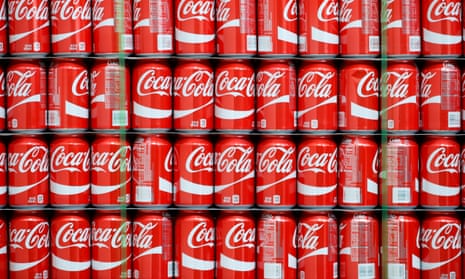More firms are expected to announce bottle deposit return services after Coca-Cola unexpectedly came out in favour of the idea.
Pepsi, Nestlé, Unilever and M&S have already committed to producing more eco-friendly bottles by using plant-based materials or less plastic, and an uptick in that trend could now be on the cards.
“We expect that any beverage company announcing or taking steps would serve to encourage other companies to follow suit,” said a spokesperson for the UN Environment Programme.
Piotr Barczak of the European Environmental Bureau said: “If Coca-Cola are serious about this then we can expect other companies – particularly smaller competitors – to follow suit.”
Rauno Raal, the CEO of the organisation that runs Estonia’s deposit return system said: “Consumers have a fast growing environmental awareness, which means that business is not any more just about revenue and profit, but also social responsibility and impact. Now that a market leader such as Coca-Cola has come to this understanding, others will follow.”
Coca-Cola’s announcement surprised many, coming after reports that the company was trying to fight proposals for a recycling trial in Scotland. But the firm could be responding to public feeling on the issue, and continental trends.
Estonia’s recycling success
European countries like Estonia – which started a bottle deposit scheme in 2005 – have reported dramatic results.
The Baltic state has a population of only 1.3 million people but collected and recycled 3.2bn “deposit packages” in the last 12 years. Last year, the return rate was 75% for cans, and 87% for both PET bottles and one-way glass.
“There is significant gap between green thinking and acting,” Raal said. “The deposit system’s monetary incentive is the key to decreasing that gap.”
Estonian shops sell colas, beers and water for a product price plus deposit, which can be retrieved when the empty bottles or cans are returned in the form of a discount on the next purchase.
“In a way it works like a car rental,” Raal said. “When you rent, you leave your credit card number and when you return the car safe and sound, the reserved money is returned to you fully.”
Which recycling model is best?
There are three models for deposit return schemes in Europe. Refilling systems leave the smallest environmental footprint, allowing shoppers to return robust bottles and cans to the manufacturer, usually for a deposit, so that each can be cleaned, refilled and reused up to 50 times.
One-way deposit schemes are similar but target single-use drinks containers, which the manufacturer can process, recycle and resell as new bottles, albeit after an energy intensive production process.
Some initiatives use no deposit and operate on a voluntary basis only, but experts say they offer little incentive for recycling.
“With so little environmental impact, reuse is definitely the best bet,” Barczak said. “It keeps bottles and cans out of tips and incinerators, saving energy and valuable resources.”
After Germany introduced a deposit return scheme in 2003, the rate of single-use bottle returns rose to 98.5%, the highest in the world. In Sweden too, around 90% of the 1bn cans sold annually are handed in for recycling.
In the UK, the figure reached 57% in 2015, but according to leaked government documents obtained by Greenpeace the target fell to 49% in 2016, and is due to increase by 2% a year.
The waste problem
David Palmer-Jones, CEO of the waste and recycling company Suez, said that businesses were increasingly filling the void left by “an absence of government direction at a UK national level”.
Norway, Finland, Denmark and the Netherlands have all rolled out highly effective deposit return schemes, while states in the US and Australia report positive results, with expansions planned.
But Coca-Cola’s announced support for trials of a bottle deposit return service in Scotland has shone a spotlight back on the private sector.Costa Coffee also recently launched a takeaway coffee cup recycling scheme, encouraging drinkers to hand in their cups for polymer-stripping, paper pulping and recycling.
At present only one in 400 takeaway coffee cups in the UK are recycled.
Proposals currently winding their way through the EU’s law-making process would force all EU countries to increase their recycling of packaging waste to 75% by 2030.
Plastic makes up about 80% of all litter in the world’s oceans, with more than 8m tonnes of the substance dumped in waterways each year.
Without drastic action, there will be more plastic than fish in the world’s oceans by 2050 by some estimates, and an estimated 99% of seabirds will have ingested plastics.
Sign up to be a Guardian Sustainable Business member and get more stories like this direct to your inbox every week. You can also follow us on Twitter.

Comments (…)
Sign in or create your Guardian account to join the discussion